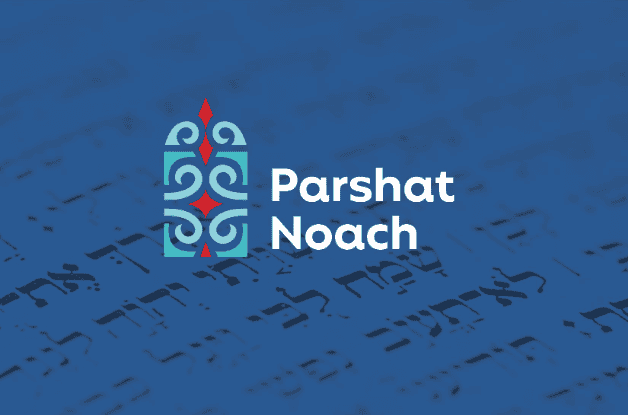
This Shabbat, BeEzrat Hashem, we will read Parashat Noach, the second portion in the book of Bereshit.
The parasha opens with a difficult description of the generation of the Flood, a generation filled with terrible corruption, theft, and violence. Chazal teach that it was the theft, meaning the complete lack of unity and consideration for one another, that sealed their fate. Amidst all that injustice stood one man, Noach the righteous. Hashem commanded him to build an ark and be saved. The Flood came and destroyed the world, and only Noach and his family survived.
After the Flood, Hashem promised never again to bring such a flood upon the world. Immediately afterward, He gave Noach and his sons (and us) an immensely important mitzvah: the commandment of “Be fruitful and multiply.” It’s worth emphasizing that this is the very first mitzvah given to humankind in the Torah, teaching us how precious and vital life is, and the deep value in bringing children into the world and building the next generation.
Toward the end of the parasha, we encounter a completely different generation, the generation of the Tower of Babel. Unlike the generation of the Flood, this one was entirely united: “one language and one purpose.” They possessed incredible strength in their unity and shared vision, yet they used that collective power to rebel against Hashem and build a tower reaching the heavens. In response, Hashem confused their language and scattered them across the earth.
What do we learn from these two generations?
Our greatest strength is unity. But if unity is missing (like in the generation of the Flood), or if it’s directed toward the wrong goals (like in the generation of the Tower), it cannot endure. Only unity that comes from goodness, aimed toward building and uplifting, brings true blessing.
May we all merit to be genuinely united and to use that shared strength only for good, to strengthen our community, uplift our families and our nation to spiritual heights, and bring forth new generations of blessing.
Shabbat Shalom U’Mevorach,
Rabbi Eliahu Barzilai ❤️
שבת שלום ומבורך: פרשת נח – כוחה של אחדות והחובה לחיים
שבת שלום לכולם!
השבת נקרא בעזרת השם את פרשת נח, הפרשה השנייה בספר בראשית.
הפרשה נפתחת בתיאור קשה של דור המבול, אשר הייתה בו שחיתות נוראה, גזל וחמס. חז”ל מדגישים שהגזל (כלומר, חוסר האחדות וההתחשבות המוחלט) הוא שחרץ את גורלם. בתוך חוסר הצדק ניצב אדם אחד, נח הצדיק. הקב”ה מצווה עליו לבנות תיבה ולהינצל. המבול מגיע ומכלה את העולם, ורק נח ומשפחתו ניצלים.
לאחר המבול, ה’ מבטיח שלא יביא עוד מבול לעולם, ומיד לאחר מכן מצווה את נח ואת בניו (ואותנו) במצווה חשובה מאין כמותה: מצוות “פרו ורבו”. חשוב להדגיש כי זוהי המצווה הראשונה שניתנה לאדם בתורה, והיא מלמדת אותנו כמה יקרים וחשובים הם החיים והרצון להביא ילדים לעולם ולבנות את הדור הבא.
לקראת סוף הפרשה, אנו פוגשים דור שונה לחלוטין – דור הפלגה. דור זה, להבדיל מדור המבול, היה מאוחד באופן מוחלט, “שָׂפָה אֶחָת וּדְבָרִים אֲחָדִים”. הייתה להם עוצמה אדירה של אחדות ושפה משותפת, אך הם השתמשו בכוח המשותף הזה כדי למרוד בה’ ולבנות מגדל שיגיע לשמים. בתגובה, ה’ בלבל את שפתם ופיזר אותם על פני כל הארץ.
מה אנו למדים משני הדורות?
הכוח הגדול ביותר שלנו הוא האחדות. אך אם האחדות חסרה (דור המבול), או אם היא מכוונת למטרה שגויה (דור הפלגה), היא אינה מחזיקה מעמד. רק אחדות שנובעת מתוך טוב ומכוונת לבנייה ולמעלה, היא זו שמביאה ברכה.
שנזכה כולנו להיות מאוחדים באמת, ושנשתמש בכוח המשותף הזה רק לטובה – לחזק את הקהילה, להרים את המשפחה ואת האומה שלנו לגבהים רוחניים, ולהביא דורות חדשים של ברכה.
שבת שלום ומבורך,
הרב אליהו ברזילי ♥️